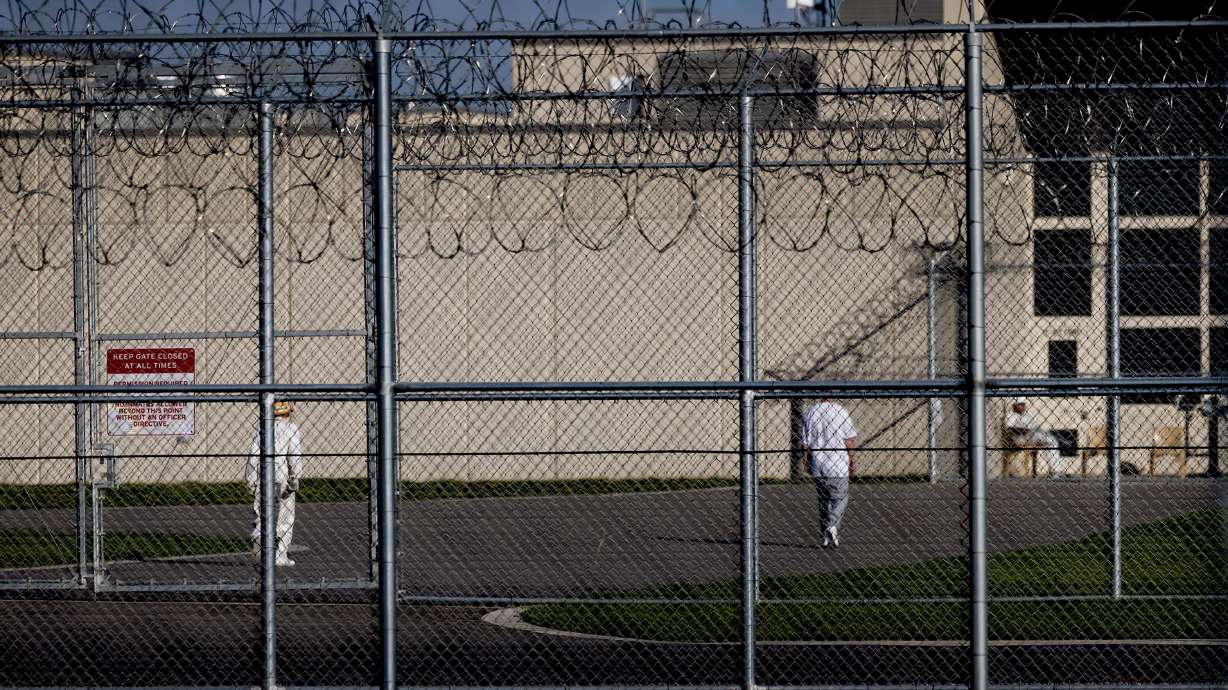Estimated read time: 3-4 minutes
This archived news story is available only for your personal, non-commercial use. Information in the story may be outdated or superseded by additional information. Reading or replaying the story in its archived form does not constitute a republication of the story.
SALT LAKE CITY — Ariel Melinda Hampton admits that prior to being sent to prison, she was stubborn and unwilling to listen to other points of view.
By age 23, Hampton, of Centerfield, Sanpete County, had three children, ranging from 10 months to 4 years old, and was drinking heavily.
On May 7, 2009, Hampton claimed she found her daughter, 2-year-old Kirsten Anderson, face down in a swimming pool and unresponsive. However, doctors and investigators were quickly suspicious of what had really happened due to bruising all over the child's body and because she did not have any water in her lungs.
She later admitted to beating her daughter to death. Hampton pleaded guilty to reduced charges of child abuse homicide and obstruction of justice. She was sentenced to consecutive terms of one to 15 years in the Utah State Prison.
On Tuesday, Hampton, now 38, went before the Utah Board and Pardons and Parole for the first time.
During the hearing, Hampton admitted she was isolated from her family at the time of her crime and wishes she would have accepted their offers to help.
"I should have sought help during my frustrations and my anger. I was young and naive also and I thought I knew it all when really I didn't. I wish I could take back my actions," she said.
Even when she first arrived at prison, Hampton admitted her attitude didn't change and "instead of problem solving, I would get angry and frustrated." She says she attended classes and programs that the Utah Department of Corrections offered because she simply felt obligated to.
But over the past three years, Hampton says she's made significant lifestyle changes.
"I realized that I was unhappy with myself and I needed to change," she told board Chairman Scott Stephenson.
Hampton says she has been working out consistently for two years now, which she says helps her not only physically, but mentally, as well. She is taking more classes because she wants to and not because she has to. And Hampton says she is happier now she has reconnected with her church.
"My mental health is better now. It's healthier. I feel calmer, more rational about things. I'm not as depressed as I used to be," she told the board. "I am smart and dedicated to my personal growth and my spirituality."
The biggest change, Hampton said, is she has learned how to be humble and take accountability for her actions.
"Before, I was closed minded and refused to see other people's points of view," she said.
Her oldest son is now 19. Hampton says he was adopted after she was sent to prison and she no longer has any sort of relationship with him. Likewise, she says her relationship with her youngest daughter, who is now 16, is "rocky" because "she doesn't know who I am — she's scared because I'm a stranger."
But Hampton says she is working to reconnect with her own family. Her brother and sister were in the audience for Tuesday's hearing.
"I love my family and I love my children. I love knowledge. I want to improve myself every day. ... Hopefully my story can help other people," she said. "I believe there is always growth in people and people can change if they want to."
The full five-member board will now vote whether to grant parole. If Hampton serves her full sentence, she would be released in 2039.










